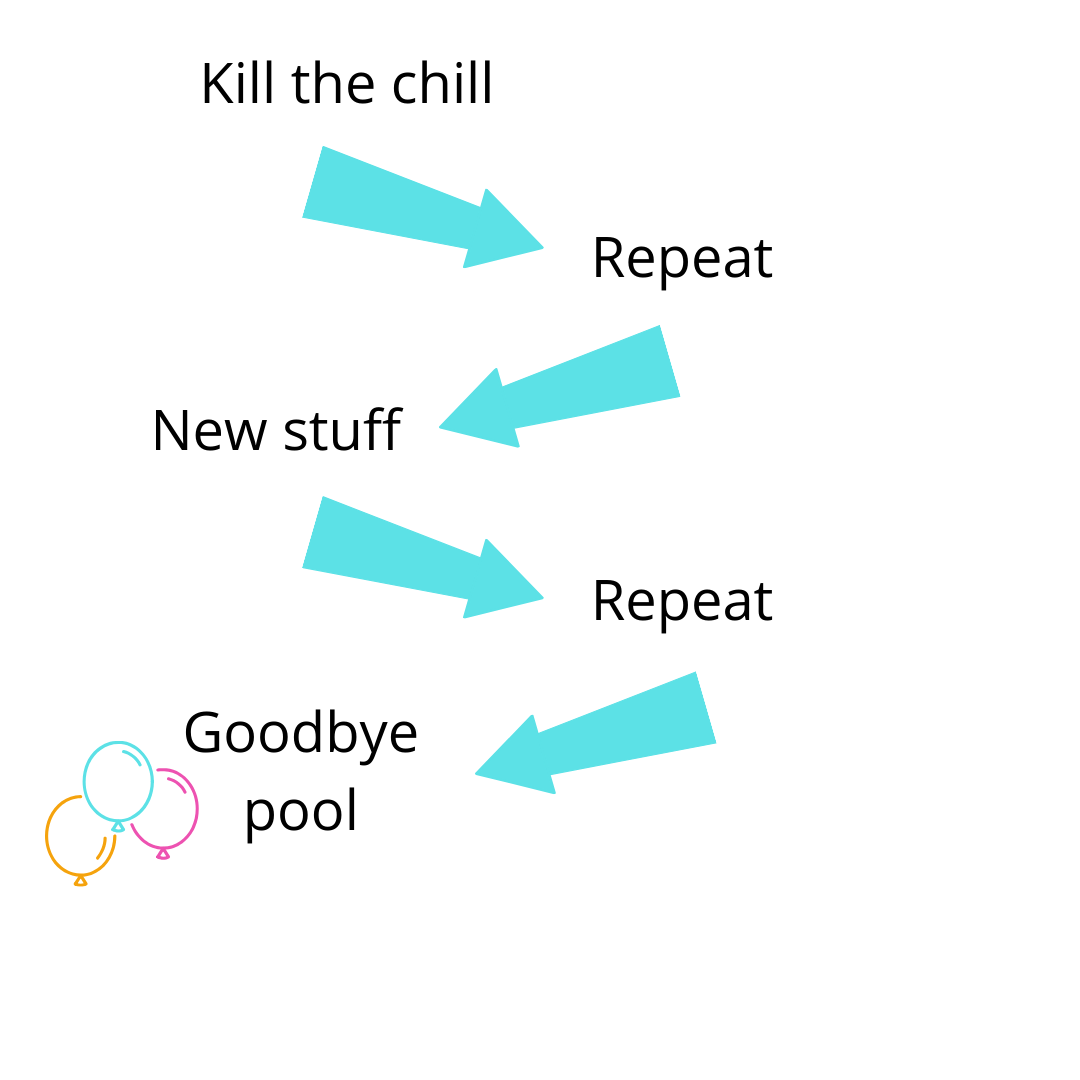Lesson planning
Making sure it has the right elements
We think that everybody can teach. But it is nevertheless not all teaching that actually creates learning.
We want you to focus on learning goals for every lesson you bring your child to the pool.
We teach the teacher to focus on learning goals through experiments and play as we know, that this is 90% more efficient than formal instructions.
We highly recommend planning a lesson like this:

1. Kill the Chill
- always start with high activity (if your child is new to the water - always choose as warm water as 30-34 celsius for the first many times)
But otherwise "Kill the Chill" is about getting the biggest muscles in motion right away, so you or your child won't get cold - because if we are cold, our ears don't work
So hit it - jump up, jump high, dive in, do many crazy things where the level of energy is going up and up, and the heat is following.
2. Repeat
- repeating is lovely - and yes prepare yourself to sing the song like two million times.... as children love repetition and they learn SO much from it. In lesson planning, we use repetition for the children (and the parents) to memorize something they tried last time - or we bring forward some activities we know they know as we have been working with it before.
You can also encourage them to show you stuff they love to do at the pool, and then you will be able to see their development from last time. YOu have it served right there when you tell the children to do something they think they can master, like or think is fun.
3. New stuff
A certain amount of time is for new stuff - of course, it depends on how much time you have, but think of the model as all the elements have importance. New stuff needs both instructions, guiding, mentoring and loads of time for playing and experimenting.
Please don't kill curiosity with too much formal learning. - when introducing new stuff - whether it is one of the FOUR Basics, jumps, flips or diving - always make room for experimenting with the new skill - children love it - and research in learning tells us, children benefit much more from informal learning than from formal learning.
IF you are able to - then try at least to be just semi-structured
4. Repeat
- well, repetition doesn't need more introduction - and then, if we told you that the brain remembers with both feelings, body, actions and thoughts (from cognitive theory) then repeating something before you go makes your child forget (a little) that the new stuff was a bit hard or today there might have happened something which was unwanted.
Repeating gives the child the feeling of being a success and feeling successfully leaves a spark of joy. This repetition practise will ensure your child that he or she is getting skills and developing abilities in the water.
5. Goodbye pool
- leaving the pool can be hard - or some find it more "finally I get to go."
We do not hope your classes are like this. However, we know that it sometimes happens that teachers and children have not made the connections yet.
Goodbye pool can include playing with the favourite toy, playing with other children or again very informal goodbye experiments. In class, there has to be both organized as well as "free" playtime.
Organized secures that everybody has some to play with - the teacher can do both, but always make sure that a little organized activity takes place in the corner of the basin as the children who are a bit shy can be with the teacher and other not yet sociable children instead. Maybe they need two or three times in the organized area to find a friend to play with.
Goodbye pool can also include a lot of craziness including high energy - leaving the pool like it is the saddest thing ever often makes the thinking of swim class lovely and worth it.
